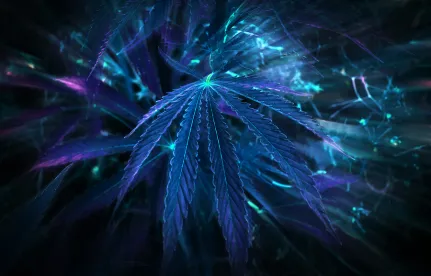Passage of the Agricultural Improvement Act of 2018 (commonly known as the “Farm Bill") into law on Thursday, December 20, 2018 is anticipated to encourage rapid growth in the burgeoning U.S. hemp industry. The $867 billion Farm Bill legalizes industrial hemp, a boon for cannabidiol, or CBD oil. Under the Farm Bill, the U.S. Department of Agriculture (USDA) will regulate hemp, which will no longer be considered a controlled substance under the jurisdiction of the U.S. Department of Justice (DOJ). The Bill will go into effect January 1, 2019.
Industrial hemp is considered any part of the cannabis plant with no more than 0.3 percent of tetrahydrocannabibol (THC) on a dry weight basis. Farm Bill Sec. 10113 (amending 7 U.S.C. 1621 et seq.). Section 12619 of the Farm Bill formally removes hemp-derived products from Schedule I status under the Controlled Substances Act, although it does not legalize CBD more broadly. The Farm Bill authorizes CBD only to the extent that it is contained in hemp produced in a manner consistent with the Farm Bill and other federal and state regulations.
Under prior federal law, industrial hemp could only be legally produced if grown or cultivated for purposes of research and allowed under state law. The Farm Bill is expected to lead to major growth in the cannabis industry at a national level. The Farm Bill allows states to become the primary regulators of hemp cultivation while enabling researchers to apply for federal grants and making the crop eligible for federal crop insurance. Id. § 7605(a); 10113.
The Farm Bill creates guidelines by which tribes and states can take primary regulatory authority over the production of hemp, requiring a plan to be submitted to USDA. Id. § 10113. It also amends both the National Agricultural Research, Extension, and Teaching Policy Act of 1977 and the Critical Agricultural Materials Act to make hemp eligible for research and development funding. The Farm Bill further requires a study of pilot programs “to determine the economic viability of the domestic production and the sale of industrial hemp.” Id. at § 7605(a) (amending 7 U.S.C. 5940).
Of special note, hemp’s new legal status may also portend significant changes to federal pesticide policy under the Federal Insecticide, Fungicide, and Rodenticide Act (FIFRA). To date, the U.S. Environmental Protection Agency (EPA) has not registered any pesticides for use on cannabis, citing the illegal status of cannabis under federal law. Even as cannabis became legalized under state laws in many U.S. jurisdictions, EPA turned down efforts by those individual states to approve “Special Local Needs” registrations that would have allowed cannabis uses for pesticides under FIFRA Section 24(c). With legalization of industrial hemp under the Farm Bill, however, EPA will now have an opportunity to consider approving nationwide, registered pesticide uses on hemp grown in full accordance with federal law and FIFRA 24(c) Special Local Needs registrations as appropriate.
In addition, while hemp-derived CBD may be off the Schedule I list, it will still be subject to regulation by the U.S. Food and Drug Administration (FDA). FDA currently considers CBD a drug, and an illegal food ingredient. Hemp seed oil has been deemed “Generally Recognized As Safe” (GRAS), but FDA needs more scientific evidence for CBD.
The one exception is for a pharmaceutical grade CBD product FDA approved in June 2018 for treatment of epilepsy, Epidiolex. It is classified as a Schedule V substance, and is currently available by prescription in all 50 states.






 />i
/>i

